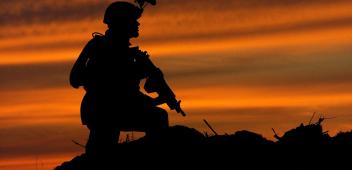Washington could win hearts and minds in Iran
Originally published in The Australian.

Washington’s directionless policy of maximum pressure against Tehran seems particularly devoid of strategic thought in the middle of the pandemic.
Iran has been one of the epicentres of COVID-19, with more than 74,877 infections and almost 5000 dead as a result. In common with others — including the US — the Iranian government has been criticised for being too late to acknowledge the outbreak and too slow to react to it. The Iranian population’s trust in its government is already at a historical low, reflected in February’s lowest turnout for a parliamentary election since the 1979 revolution. But Iran is also suffering under the weight of crippling US sanctions, and they are contributing both directly and indirectly to Tehran’s challenges in addressing today’s crisis.
This raises obvious questions about not only the strategic, but the moral sense in maintaining such a punitive unilateral sanctions regime during the course of a global health calamity.
The Iranian President and Foreign Minister have been quick to call for Washington to end the sanctions rather than simply to offer humanitarian assistance. They are obviously trying to leverage the crisis to achieve their broader strategic intent of ending the sanctions regime. The Supreme Leader also rejected offers of humanitarian aid, but did little to appeal to international audiences by accusing Washington of seeking to use such aid to increase, rather than ease, the effects of the pandemic.
But Washington is also experiencing an increasing publicly and privately expressed opposition to its policy as calls for sanctions relief have grown both inside and outside the US. Apart from the usual suspects, such as China and Russia, more recently a group of more than two dozen US NGOs called for a temporary lifting of sanctions, and there are media reports that London has also been quietly urging the same.
There are already indications that some countries are using the pandemic to advance their own interests with respect to Iran, sometimes with American assent and sometimes without. Both Qatar and the UAE have sent direct shipments of medical aid to Tehran, while Germany, France and the UK utilised their Iran trade mechanism to provide limited medical products. And an Iranian-British woman, Nazanin Zaghari-Ratcliffe, held for the past five years, has been released on furlough in Iran, as has an American citizen Michael White, held in an Iranian prison for the past 18 months. And the French government announced the swap of a French citizen for an Iranian engineer whom the Americans wanted to extradite on charges of sanctions violations.
For its part, the Trump administration claims there are mechanisms for Iran to access humanitarian assistance even with the sanctions regime in place, and has cited the signing of the Swiss Humanitarian Trade Arrangement as evidence of the steps it is taking to allow humanitarian trade with Iran.
At the same time, Secretary of State Mike Pompeo has accused Tehran of misusing humanitarian funding provided by Europe to buy non-humanitarian goods.
Critics of Washington’s sanctions regime counter that the threat of secondary sanctions from the Americans has made financial institutions too wary of doing business with Tehran and supply chains too difficult to access, while the Swiss arrangement is too limited to make a significant difference to a country of 90 million people and it requires Iran’s central bank to continue injecting funds into monitored offshore accounts at the same time as the sanctions regime denies it funds.
Iran has applied to the International Monetary Fund for a multi-billion-dollar loan for the first time in 60 years, although Washington is reportedly seeking to block this. Regardless, it indicates how significant a financial cost the pandemic is imposing on it.
With this in mind, Washington today has an opportunity to ease tensions in the region and to gain favour among the Iranian population through a targeted lifting of sanctions for the duration of the pandemic.
It is not without precedent. George W. Bush did it, albeit on a much smaller scale, after the 2003 earthquake that devastated the Iranian city of Bam.
Doing so in the middle of a global pandemic makes strategic and humanitarian sense.
Rodger Shanahan is a research fellow at the Lowy Institute.


